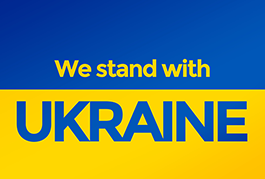Policy and Ethics
For authors
Submitting a manuscript to the journal means that the work described is not protected by copyright. Before submitting the manuscript to the journal editors, the corresponding author must make sure that all co-authors give their consent. The submitted manuscript, written in scientific English, should have a logical and clear structure and be formatted in a style consistent with the journal template. If English is not your first language, try to get help from a native English speaker when writing your manuscript. We would like to inform the authors that the editors cannot make significant corrections to the manuscripts due to time constraints and the risk of distorting the meaning of the material presented in the article. In the future, the corresponding author must ensure full consensus of all co-authors when approving the final version of the article and submitting it for publication.
The editors of the journal put forward the following basic rules for authors who submit their manuscripts:
- Authors must avoid copyright infringement and plagiarism.Authors whose manuscripts are found to have violated academic integrity, including plagiarism, will be barred from submitting materials for 2 years.
- The authors are responsible for ensuring that the work is not published or submitted for publication in another publication. Submitting manuscripts of articles that essentially describe the same study to multiple journals at the same time is unethical and unacceptable.
- Authors must declare conflicts of interest and, if necessary, apply for ethical approval (ethical approval is required for submission of research manuscripts that describe animal and/or human experiments).If there are no conflicts to report, authors should declare that they have no conflicts of interest.
For reviewers
All article manuscripts submitted for publication in our journal are subject to a rigorous and thorough peer review process (both original research and review articles). The so-called "double-blind" review is carried out (the reviewers do not know the authors and the authors do not know the reviewers). Any manuscripts received for review must be treated as confidential documents and may not be used by the reviewers for their own benefit or shared with a third party.
Requirements for reviewers, reviews and the review process:
- Reviewers must have at least a Ph.D. degree (in one of the journal's specialties), have no joint publications with the authors, and have recent publications on the subject of the submitted manuscript.
- Reviews must be objective, and comments must be clearly formulated and reasoned, so that the authors can use them in the future to improve the manuscript of the article.
- A reviewer, whose scientific interests do not coincide with the research topic (is a specialist from another field) presented in the submitted manuscript of the article, must immediately notify the editor and refuse the review process.
- A reviewer should not consider a manuscript in which there is a conflict of interest for him, which is the result of competitive, common or other relationships and ties with any of the authors, companies or institutions associated with the manuscript.
- The reviewer must notify the editor of any significant similarity of the manuscript to another published article of which he is aware.
For editors
The editor coordinates the entire manuscript processing process: manuscript acceptance, preliminary assessment of compliance with the topics of the journal, plagiarism checking, peer review, decision making, editing, English editing, proofreading, and final publication.
The editor of the journal performs an initial check of the suitability of the manuscript after it is received. Following that, a peer review process is organized, during which the editors must receive at least two reports (three if the first two differ significantly) on the review of the submitted manuscript.
The final decision on publication after the peer review process is made by the editor-in-chief or a member of the editorial committee of the journal responsible for the manuscript received by him. After the final decision of the editor, the authors may be informed of the following:
- Accept as is. The manuscript of the article is accepted without any changes.
- Accept after minor changes. The manuscript of the article is accepted after editing based on the reviewer's comments. Authors are given up to seven days for minor revisions.
- Review after essential changes. Acceptance of an article manuscript will depend on the editors and reviewers. The author should provide a clear response or rebuttal if some of the reviewer(s) comments cannot be revised. Authors will be asked to resubmit their revised manuscript within two weeks, and a revised version will be shared with reviewers for further comments.
- Reject with an incentive to resubmit. Manuscripts that require additional experimental or theoretical studies to confirm the conclusions will be rejected. Authors will be invited to resubmit the manuscript after further research.
- Reject. The manuscript of the article is severely flawed or lacks original contributions. In this case, the manuscript of the article is rejected without an offer to resubmit to the journal.
The editor has no right to use unpublished information obtained in the process of receiving manuscripts in his own research without the express written consent of the author. Editors must take clear and prudent measures to respond to ethical complaints regarding a submitted manuscript or published article.
The editors of the journal "Security of Infocommunication Systems and Internet of Things" are extremely responsible for their duties regarding the stages of publication, recognize their ethical and other responsibilities. Therefore, a request to all involved parties: authors, editors, reviewers and the publisher to adhere to the standards of ethical behavior specified in this document and regulated by the internationally accepted standards of COPE (Committee on Publication Ethics – http://publicationethics.org/international-standards-editors-and-authors).








